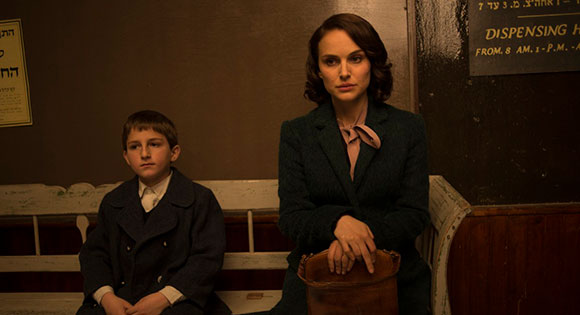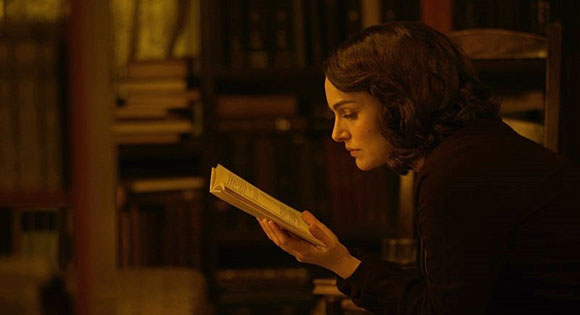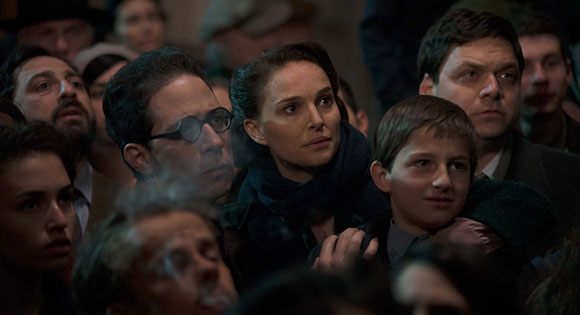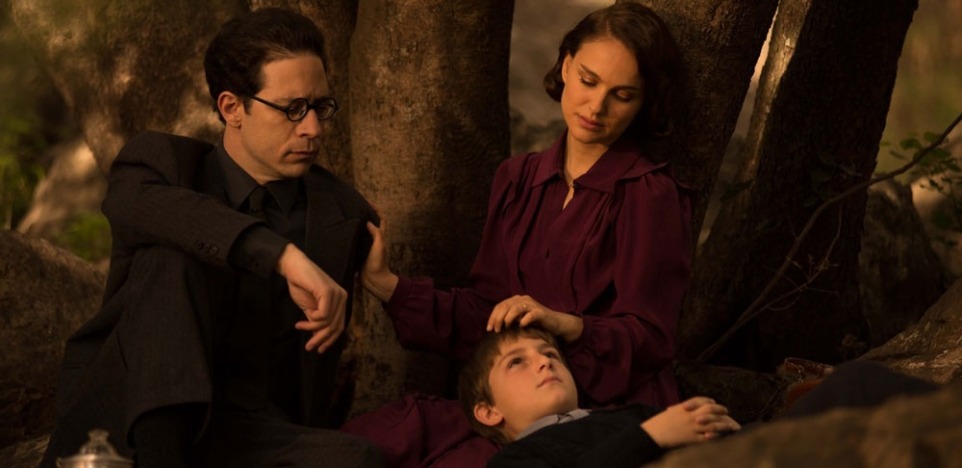Actress Natalie Portman has chosen for her debut as a feature film director the historically compelling 2002 autobiography of Amos Oz, the Israeli writer, novelist, journalist, and intellectual; she also wrote the screenplay and stars as Oz's mother. This ambitious story, which is mostly set in Jerusalem, begins in 1945 during the British Mandate for Palestine. It takes within its embrace the portrait of a troubled family, the childhood of a sensitive boy, the appeal of the Zionist dream, and the love of storytelling as a means of delving deeper into life's mysteries.
It's almost as if Portman anticipated that people would compare her film with Oz's memoir and find it lacking in breadth and depth. So she has added a narrator who throughout the film reflects upon what is happening among the characters. These commentaries are important in unfolding the story's historical context, and we found them some of the most memorable parts of the film.

In one of the most intimate moments in this intense drama, Fania Klausner (Natalie Portman) says to her young son Amos (Amir Tessler):
"I think you will grow up to be a sort of prattling puppy dog like your father, and you'll also be a man who is quiet and full and closed like a well in a village that has been abandoned by all its inhabitants. Like me."

These lines convey both the closeness of this mother and son and also the mystery that crops up periodically in their relationship. Amos is a keen observer of the heavy tension which fills the air around his father, Arieh Klausner (Gilad Kahana), a scholar with a passion for literature and linguistics. As an example, he tells his son that in Hebrew the word for childlessness is related to the word for darkness and both imply a lack of light.
Although Amos is the light of her life, Fania is not a happy woman. Her mother, who was a woman of means in pre-Holocaust Poland, takes her disappointment in life out on her daughter, abusing her verbally. After one incident, Fania slaps her own face repeatedly while crying hysterically. The searing hurt of her mother's anger stays with her and manifests itself externally as insomnia, migraine headaches, and long bouts of silence and loneliness. As she becomes more depressed and withdrawn, Amos misses listening to his mother's stories of far-away places. At school he becomes a storyteller himself to ward off bullies.

Several scenes in A Tale of Love and Darkness reveal the complexity of Israel/Palestine and its complicated journey through peril, violence, and enmity. Early on in the story, Amos goes to a party at a friendly Palestinian neighbor's home. In the garden, he meets an Arab girl and explains that "there is room for two peoples in this land." But accidents and surprises shatter that dream.
The Jewish longing for a safe homeland is evident when we see Amos's family and friends celebrating after hearing the radio report on the United Nations vote on the creation of a Jewish state through the partition of Palestine. And in the closing scene, Amos as a young man has started a new life on a kibbutz. His father comes to visit and he introduces him to what he is now learning. We know that he carries with him his mother's creativity and dreams for the future of Israel.
